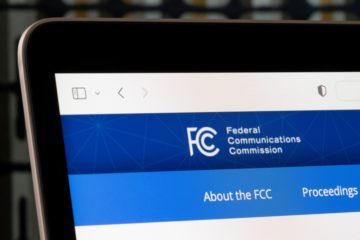Current antitrust actions led by figures like FTC Chair Lina Khan and Senator JD Vance threaten not only the success of these companies but also the fundamental freedoms they enable.
Khan’s aggressive stance against Big Tech, particularly her push to break up or heavily regulate tech giants, reflects a disturbing trend of government overreach. At first glance, these efforts are marketed as pro-consumer and pro-competition. However, it becomes clear that such regulatory aggression does far more harm than good—both for innovation and for free expression. In a new article at Real Clear Markets, Market Institute President Charles Sauer pushes back against the stifling FTC overreach.
“Meta, parent company of Facebook, Instagram, Messenger, WhatsApp, and other social media and technology businesses, recently lifted its ban on the word “shaheed.” Shaheed, an Arabic word that roughly translates to martyr, was banned because it has been used to praise terrorists—thus violating Meta’s policy forbidding advocating or praising terrorism on its platforms. Meta agreed to revise its total ban on shaheed in response to complaints from Muslim and Arab organizations pointing out that, per Nadim Nashif, founder of the Arab Center for the Advancement of Social Media, the word can also describe “Anyone killed unjustly, or anyone that died on their way to their studies, as well as those who have died for their homeland.” Meta’s new policy will take into account the context in which the word is used in order to ensure only those posts that actually violate Meta’s policies are removed.
Meta’s decision to modify the ban on shaheed was praised by none other than Federal Trade Commission (FTC) Chair Lina Khan. Chair Khan called Meta’s decision “… a victory for freedom of expression… It demonstrates that large tech companies can be responsive to user concerns and adapt their policies.” Khan became a progressive superstar while still in law school when she penned a law review article arguing that big tech companies are so powerful that they are impervious to the wishes of their customers. Yet here she is admitting that even the biggest of big tech companies are responsive to consumers, even if the government does not step in to force the companies to listen to their customers.
In fact, when it comes to preserving free speech online, the American people need protection not from tech companies, but from Khan and the Biden Administration. Like most progressives, Khan thinks social media companies need more censorship, and sees nothing wrong with government enforcement to restrict certain types of online speech. For example, in a 2022 report, Khan’s FTC urged social media companies take steps to combat “hate speech”, “harassment”, and “election-based disinformation.” The Biden Administration has done more than just online censorship or “content moderation.” Leaked emails show that Biden Administration officials “encouraged” or “reminded” social media companies that they were subject to increased government regulation if they didn’t censor Americans who posted items questioning the government’s COVID policies.
Instead of siding with those Americans whose First Amendment rights were violated by the Biden Administration, Khan’s FTC sided with the censors by demanding to know which journalists worked with Twitter CEO Elon Musk to expose how the government was pressuring Twitter to censor its users!
The progressive push to “deplatform” anyone more than six feet to AOC’s right has led many conservatives, including Republican Vice Presidential nominee JD Vance, to abandon free market conservatism in favor of big government ”Khanservatism.” Texas and Florida have both passed laws forbidding social media companies from engaging in content moderation. At the federal level, Khanservatives have joined with progressive Democrats to support legislation imposing new regulations on big tech. Senator Vance has actually gone further than Lina Khan by calling for the government to break up big tech companies.
Khanservatives may claim that the only reason Meta lifted the ban on shaheed is because it is not “politically correct” to deplatform Muslims—whereas Christian conservatives are fair game. Assuming for the sake of argument that this is true, it actually furthers the case for conservatives to avoid further entangling big tech with big government. Instead, conservatives should take the approach of Senator Rand Paul and switch from censorious tech companies to more free speech-friendly platforms. After all, why use platforms run by people who not only disagree with your politics, but who think you’re a dangerous extremist spreading fake news at the behest of Vladimir Putin?”


